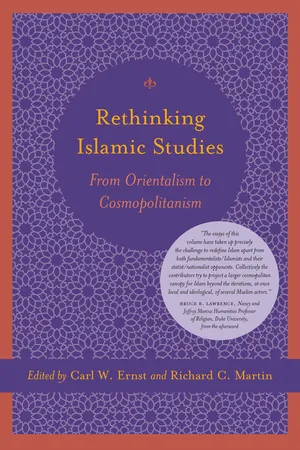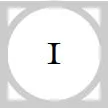![]()
Rethinking Modernity
Islamic Perspectives
![]()
Reasons Public
and Divine
Liberal Democracy, Sharia Fundamentalism,
and the Epistemological Crisis of Islam
VINCENT J. CORNELL
You [Americans] are the nation who, rather than ruling by the sharia of God in its Constitution and Laws, choose to invent your own laws as you will and desire. You separate religion from your policies, contradicting the pure nature that affirms Absolute Authority to the Lord and your Creator. You flee from the embarrassing question posed to you: How is it possible for God the Almighty to fashion His creation, grant men power over all creatures and land, grant them all the amenities of life, and then deny them that which they are most in need of: knowledge of the laws which govern their lives?
Osama bin Laden
Very few words have been the subject of controversial understanding and abuse as the word democracy. I think that only the word religion had a similar fate throughout history. . . . Maybe because of that, it is necessary for me to give my own opinion on the question. I believe that God created people free and equal, that higher or lower races do not exist, and neither do good or bad nations. I believe that people bring with themselves a certain number of inalienable rights, that governments have no right to limit these rights, much as I do not believe in the unrestricted rights of the majority, as tyranny of the majority is a tyranny like all others. I believe that the measure of liberty is the relationship to minorities, and freedom of thought is, above all, the freedom to think differently. These, in short, constitute my understanding of democracy.
Alija Izetbegovic
The late Bosnian president Alija Izetbegovic might have added that in contemporary Islam as well, few concepts have been as contested as democracy. As an
early Sufi once remarked about
tasawwuf, “Today it is a name without a reality, but formerly it was a reality without a name.” The Sufi
Ali al-Hujwiri (d. 1071
C.E.), who cites this statement in
Kashf al-Mahjub (Unveiling the Veiled), explains it as follows: “Formerly the practice was known but the pretense was unknown, but nowadays the pretense is known and the practice unknown.”
1 The pretense of democracy is indeed well known in the contemporary Islamic world. However, in most Muslim countries, the practice of democracy is another matter. As Izetbegovic also said in the speech from which the above quotation was taken, “Absolute rulers rarely admitted that they were dictators, [but] called themselves democrats and asked others to consider and call them as such.”
2As William E. Connolly states in The Terms of Political Discourse, democracy, like “justice” and “freedom,” is a contested concept that is embedded in rival theories.3 Even among classical political theorists, views of democracy varied widely. For Aristotle democracy (demokratia) meant rule by the lower classes. He saw democracy as a deviation of polity (politeia), rule by the many. Aristotle divided political systems into three types. In royalty one person rules in the common interest; the deviation of royalty is tyranny, where a single person rules in his private interest. Aristocracy is rule by a favored few in the interest of the many; oligarchy, the deviation of aristocracy, is rule by the rich in the interest of the rich. Polity is rule by the many in the common interest; democracy, the deviation of polity, is rule by the many in their own interest.4
Aristotle did not clearly favor one political system over the others. He felt that the state should be composed, as far as possible, of citizens of equal or similar means. Given the actualities of human nature, a society composed of a large middle class was the most likely to promote justice by following the mean.5 Aristotle was worried most of all about oligarchy. Although democracy had its faults, it was less of a threat to the establishment of justice. It was the best of the three deviations of proper rule, since the desire of the poor to rule in their own interest at least gave the possibility of promoting the interests of the greatest number of people.6
Aristotle’s definition of democracy was the basis for the notion of democracy as “rule by the people.” The concept of rule by the people recalls the notion of civil society, which is central to Osama bin Laden’s critique of democracy in America. Although there are several approaches to the concept of civil society, in the United States civil society is based on a democratic, pluralist view of civic organization. According to this view, in the words of Alexis de Tocqueville in Democracy in America (1840), “The people reign over the political world as God reigns over the universe.”7 For Tocqueville, as for most liberal theorists of democracy, popular sovereignty is exercised through self-government, which promotes the common good by expressing the will of the majority.8 According to the democratic pragmatist John Dewey (d. 1952), the desire for self-government and concern for the common good are not inborn values but depend on education and experience. Democratic values are nurtured by a political culture of engagement that develops out of local voluntary associations in which citizens of similar social standing, education, and temperament practice the skills of self-rule. In one sense Dewey democratizes Aristotle’s notion of rule by the middle classes. More directly he affirms a principle that Thomas Jefferson enunciated in 1820: “I know no safe depository of the ultimate powers of the society but the people themselves; and if we think them not enlightened enough to exercise their control with a wholesome discretion, the remedy is not to take it from them, but to inform their discretion by education.”9
Liberal democracy has been challenged on theological grounds by a number of Islamist critics. For Islamist ideologues Tocqueville’s statement that in America “the people reign over the political world as God reigns over the universe” is evidence that democracy is grounded in
shirk (associating partners with God), which in this case would mean the usurpation of divine sovereignty by popular sovereignty. Shortly before he was killed in a shoot-out with Saudi security forces outside of Mecca in June 2003, the al Qaeda activist Yusuf al-Ayeri published an essay that portrayed liberal democracy as a grave threat to Islam. According to Ayeri the problem with democracy is that it is based on the concept of the autonomous individual, whose participation in civil society shapes the political and moral nature of society as a whole. The exercise of personal autonomy opens the door for other individualistic doctrines such as religious pluralism and moral relativism. Democratic individualism undermines God-given moral standards by basing political relations on the lowest common denominator of human values. Furthermore, by denying divine sovereignty, democracy “seductively” causes people to believe that they are the authors of their own destinies and that they can change the laws that govern them. Muslims who support democracy are thus led to ignore the commands of God, reject the Shari
a as the expression of God’s will, and “love this world, forget the next world, and abandon jihad.”
10 The gendered tone of Ayeri’s critique is unmistakable: Eve, in the guise of democracy, seduces the Islamic Adam into tasting the forbidden fruits of moral autonomy and free will.
Despite its extremism Ayeri’s critique of democracy has a point. Liberal notions of moral autonomy and free will may indeed pose a threat to Islamic traditionalism, if not to Islam itself. Ironically some Islamist critiques of democracy seem more attuned to historically traditional Islamic worldviews than are the accommodationist positions of Muslim democrats and other apologists for modernity. When Osama bin Laden says to Americans, “You choose to invent your own laws as you will and desire. You separate religion from your policies, contradicting the pure nature that affirms Absolute Authority to the Lord and your Creator,” he is not entirely wrong. John Locke (d. 1704), who was arguably the most influential forefather of the American tradition of liberal democracy, believed that God delegated the freedom of moral and political choice...











